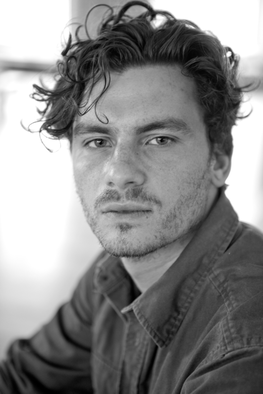This Will Never Catch On
Colm Summers
|
COLM SUMMERS is an Irish director, writer and founder of Felicity Theatre. He lives in the East Village, New York. He creates one-of-a-kind conversations that transform audiences into communities. Credits: The Rehearsal, Playing the Dane (National Theatre of Ireland, Dublin, 2018), Bite/Scratch (Live Collision International Festival 2017/18), Dike by Hannah Benitez (Urbanite Theatre Sarasota, Florida), Love à la Mode (Dublin, 2018 & 2017), Gays Against the Free State! (Smock Alley, Dublin Fringe, 2016), Enemy of the Stars by Wyndham Lewis (Dublin & Morocco, “Best Experimental Theatre” Award), God’s Ear by Jenny Schwartz, (Samuel Beckett Theatre). Colm has worked with The Wooster Group, Dead Centre, and Pan Pan (Dublin/New York). Read his essays in Blast at 100 (Brill) and in Charles Macklin and the Making of the 18th Century. As a playwright, Colm published in Fresh Cuts: A Selection of New Plays from Dublin Fringe (Oberon). Colm is currently assisting Milo Rau on Mozart’s Clemenza di Tito in Geneva.
|
Abstract
This Will Never Catch On is an article about the future of theatre. It outlines how theaters have integrated technology in their work since the crisis began, and what we can learn from that work about the essence of theatre-making. This Will Never Catch On proposes that the effects of coronavirus on the theatre will be as significant in the history of theatre as the invention of photography in the history of painting. It imagines the post-Covid-19 audience and challenges readers to propose their own definitions for a theatre after the crisis. It is a call-to-action for a 'yes, and' approach to theatre, technology and the use of technology in the theatre.
This Will Never Catch On is an article about the future of theatre. It outlines how theaters have integrated technology in their work since the crisis began, and what we can learn from that work about the essence of theatre-making. This Will Never Catch On proposes that the effects of coronavirus on the theatre will be as significant in the history of theatre as the invention of photography in the history of painting. It imagines the post-Covid-19 audience and challenges readers to propose their own definitions for a theatre after the crisis. It is a call-to-action for a 'yes, and' approach to theatre, technology and the use of technology in the theatre.
| etudesdec2020summers.pdf | |
| File Size: | 1324 kb |
| File Type: | |


